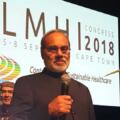Today, on April 16th, we celebrate National Librarian Day, a day dedicated to recognizing the invaluable contributions of librarians across the United States. Librarians are more than just custodians of books and media; they are guardians of knowledge and facilitators of education, guiding patrons through the ever-expanding digital and print landscapes.
This special day provides an opportunity to acknowledge and appreciate the profound impact these professionals have on our communities, ensuring access to essential information and fostering lifelong learning.
Libraries, as enduring institutions, serve as crucial repositories of collective knowledge and cultural heritage. Their role extends beyond mere storage spaces for books; they are dynamic, interactive platforms that support research, education, and public engagement.
The significance of libraries spans various fields, including the sciences, arts, and particularly in medicine and homeopathy.
For practitioners and scholars in these fields, like Dr. Cyrus Maxwell Boger, libraries have been indispensable in their quest for knowledge and in advancing their practice.
As we explore the history and evolution of libraries, we can better appreciate their role in not only preserving but also propagating intellectual heritage across generations.
Today, let’s reflect on how these pivotal institutions continue to shape our understanding of the world and support professional domains such as homeopathy, where documented knowledge and historical continuity are key.
The Historical Significance of Libraries
Libraries have been pillars of civilization, nurturing the growth of knowledge, culture, and community since ancient times. These institutions emerged as critical centers where societies preserved and exchanged information. The legacy of libraries begins with the dawn of recorded history, playing pivotal roles in shaping the intellectual landscapes of the civilizations that fostered them.
The Library of Ashurbanipal
One of the earliest known libraries was established in the 7th century BCE by King Ashurbanipal in Nineveh, present-day Iraq. This library was home to tens of thousands of clay tablets inscribed with cuneiform script, encompassing a wide range of genres—government records, religious texts, and scholarly treaties. It reflects the Mesopotamian dedication to collect and catalog knowledge, making the Library of Ashurbanipal a critical repository of the era’s wisdom. This library not only preserved knowledge but also served as a research center for scholars of the time, showcasing the Assyrian kings’ commitment to learning and cultural preservation.
The Library of Alexandria
Perhaps the most famous library of the ancient world, the Library of Alexandria, founded in the 3rd century BCE in Egypt, became the symbol of knowledge and scholarly pursuit. Conceived by Ptolemy I Soter and expanded by his successor Ptolemy II, the library was part of a larger research institution called the Mouseion. The Library of Alexandria is estimated to have housed hundreds of thousands of scrolls, including works on philosophy, science, and literature from all over the known world. Its scholars were among the first to organize knowledge systematically, classifying and cataloging texts, thus pioneering many of the practices seen in modern libraries. The institution’s ambitious goal was to compile all human knowledge, and it attracted scholars from across the Mediterranean and beyond, enhancing its reputation as the intellectual capital of the world.
Libraries as Centers of Learning and Cultural Preservation
The historical significance of libraries extends beyond the mere storage of information. They served as vibrant cultural hubs, where scholars and thinkers gathered to share ideas and advance human understanding. Libraries like those of Ashurbanipal and Alexandria were not just storage sites but were active cultural preservatives, safeguarding the intellectual outputs of civilizations and ensuring the transmission of this knowledge through generations. They fostered an environment of intellectual vigor and debate, crucial for the development of many fields of study.
This tradition of libraries as centers of learning and cultural preservation continues to influence modern perceptions of these institutions as fundamental to educational and cultural development. The ancient libraries’ roles illuminate the timeless value of libraries in nurturing intellectual growth and cultural continuity, principles that remain at the heart of library science today. As we reflect on these historical benchmarks, we appreciate how libraries have consistently served as the bedrock of scholarly and cultural advancement.
Libraries Through the Ages: A Global Perspective
As repositories of knowledge and culture, libraries have evolved through the centuries, adapting to the needs of their times while maintaining their core roles as centers of learning and community engagement. This section highlights significant libraries in key regions, illustrating their historical and ongoing contributions to global scholarship and culture.
United States
- Library Company of Philadelphia: Founded by Benjamin Franklin in 1731, this library was one of America’s first lending libraries and remains operational today. It played a crucial role in shaping the intellectual life of Philadelphia and indeed, the nascent United States, providing access to books for many of America’s founders and influencers.
- Harvard College Library: Established in 1638, this is the oldest library system in the United States associated with a university. Its extensive collections have supported generations of scholars and include some of the earliest and most unique works relevant to American history and global studies.
United Kingdom
- The Bodleian Library: Founded in 1602 at the University of Oxford, it is one of the oldest libraries in Europe. With over 13 million printed items, it serves as a legal deposit library, a status that entitles it to a copy of every book published in the UK and Ireland, significantly contributing to its expansive archives.
- The British Library: Originating as part of the British Museum in 1753 and established as its own entity in 1973, The British Library in London is one of the world’s largest libraries. Its collection has grown to over 170 million items, including manuscripts, maps, newspapers, magazines, prints, drawings, and music scores.
Germany
- The Herzog August Library: Located in Wolfenbüttel, Lower Saxony, this library was founded in 1572. It houses a premier collection of medieval and early modern texts across Europe and is renowned for its extensive holdings of ancient manuscripts and books.
- The Bavarian State Library: Established in 1558 in Munich, it is one of the most important academic libraries in the world, holding over 10 million books. It serves as a key resource for scholarly research and provides an extensive range of services to the public.
India
- The National Library of India: Situated in Kolkata, this library is the largest in India by volume and public record. Its roots trace back to the colonial era, but it was formally established in its present form in 1948. It serves as a repository of a vast collection of books, periodicals, and manuscripts in various languages.
- The Sarasvathi Mahal Library: One of the oldest libraries in Asia, located in Tanjore, Tamil Nadu. It was started as a royal library for the Nayak kings of Thanjavur in the 16th century and contains over 49,000 volumes, mostly in Sanskrit, Tamil, and other Indian languages, focusing on diverse subjects such as medicine and philosophy.
Special Highlight: Nalanda University Library (Dharmaganja)
- Nalanda University Library: The ancient library at Nalanda University, known as Dharmaganja, served as a prominent knowledge hub in ancient India. Established in the 5th century in what is now Bihar, it attracted scholars from across Asia. As a center of Buddhist scholarship, the library housed thousands of manuscripts and was famed for its vast collection of Buddhist texts, as well as works on science, astronomy, and logic. The destruction of this library in the 12th century marked a significant loss to global cultural and educational heritage. Its legacy, however, underscores the library’s historical role in promoting scholarly exchange and intellectual development across Asia.
These libraries not only highlight the historical evolution of library services but also emphasize their pivotal role in educational advancement and cultural preservation across different regions and epochs.
Libraries and Their Contributions to Homeopathy and Medical Sciences
Libraries have long been foundational to the advancement of medical knowledge and research. By preserving and disseminating medical literature, these institutions have played a crucial role in the education of healthcare professionals and the development of medical sciences, including the field of homeopathy.
Supporting Medical Research and Education
Libraries serve as essential resources for medical researchers and practitioners by providing access to a vast array of medical texts, journals, and databases. These collections allow for the review of historical treatments, the study of emerging medical techniques, and the cross-referencing of drug information, which are all crucial for evidence-based practice. Academic and medical libraries often work closely with medical faculties to provide tailored resources that support both teaching and research activities. Through these efforts, libraries facilitate continuous learning and adaptation in the fast-evolving field of healthcare.
The Role of Libraries in Homeopathy
In the specialized field of homeopathy, libraries offer indispensable support by housing both classical texts and contemporary research materials. The availability of comprehensive homeopathic literature—from foundational principles laid out by Samuel Hahnemann to modern clinical studies—enables practitioners to engage deeply with the discipline. For homeopaths, libraries act not only as sources of practical therapeutic knowledge but also as archives of the philosophical underpinnings of homeopathic medicine.
Dr. Cyrus Maxwell Boger and the Use of Libraries
Dr. Cyrus Maxwell Boger, an influential figure in homeopathy, exemplified the use of libraries for enhancing medical practice and education. His work heavily relied on documented research and the extensive study of homeopathic literature, much of which he accessed through libraries. Boger’s own contributions to the homeopathic corpus are significant, with his books and articles continuing to be essential readings for homeopaths worldwide.
Boger’s methodology often involved detailed case studies, referencing and cross-referencing symptoms and remedies, which he correlated with historical texts available in libraries. This rigorous approach not only enriched his own practice but also provided a structured framework for others in the field. His reliance on and contribution to homeopathic literature underscore the critical role libraries play in the nurturing and dissemination of medical knowledge.
By highlighting Dr. Boger’s utilization of libraries, we can appreciate the broader importance of these institutions in the ongoing development of homeopathy. Libraries ensure that valuable knowledge, such as Boger’s work, remains accessible to practitioners and researchers, thereby supporting the growth and maturation of homeopathic medicine across generations.
This section of the article not only acknowledges the historical contributions of libraries to medical sciences and homeopathy but also celebrates the ongoing legacy of professionals like Dr. Boger, who leveraged these resources to push the boundaries of their fields.
The Modern Library and Its Evolving Role
As society evolves, so too do libraries, adapting their roles and services to meet the changing needs of their users. Today’s libraries extend far beyond traditional boundaries, embracing new technologies and methodologies to remain central to educational and community life.
Libraries as Educational and Community Hubs
Contemporary libraries continue to serve as vital educational hubs, offering access to a wealth of information and resources. They facilitate lifelong learning through organized workshops, lectures, and classes that cover a wide range of topics—from literacy and career development to technology skills and arts and crafts. Libraries also function as community centers, providing a safe, inclusive space for people to meet, interact, and engage in civic activities. They host book clubs, cultural events, and community meetings, strengthening communal ties and fostering a sense of belonging among diverse population groups.
Embracing Digital Transformation
In the digital age, libraries are at the forefront of technological integration, expanding their collections to include digital archives and e-resources. This shift not only reflects the changing nature of media consumption but also ensures that libraries remain relevant as information becomes increasingly accessible online. Digital libraries allow users to access ebooks, audiobooks, academic papers, and even video content from anywhere, making it easier than ever for users to find and utilize information.
Despite the growth of digital collections, physical books and documents remain an essential part of library offerings. There is a continuous effort to balance between digital and physical collections, ensuring that patrons have access to both formats. This balance is crucial as each format offers distinct benefits and experiences; while digital resources provide convenience and accessibility, physical materials offer tactile engagement and a sense of nostalgia, which many users still value highly.
The Role of Librarians in the Digital Era
Librarians today wear many hats—they are educators, information specialists, and community organizers. In addition to traditional roles such as cataloging and archiving, librarians now teach digital literacy skills and how to critically evaluate information sources. They are also involved in the curation of digital content and the management of technology that supports digital learning and access.
Librarians facilitate research by helping users navigate vast databases of information, offering expertise in data management and retrieval that is invaluable for academic and professional research. Their role in education extends to all ages, from teaching young children about internet safety to helping adults learn new software or research skills.
In terms of community engagement, librarians play a key role in outreach programs, ensuring that library services are accessible to underserved populations and adapting resources to meet community needs. This may include language learning classes, immigration resources, and job search assistance, making the library a crucial support system within the community.
The evolving role of libraries and librarians highlights their continued relevance in a rapidly changing world. As repositories of both traditional knowledge and digital resources, libraries remain fundamental to personal and community growth, education, and engagement.
Ways to Support and Celebrate Libraries
Libraries play a crucial role in fostering educational opportunities and community engagement. Supporting these invaluable institutions not only enhances their capabilities but also promotes a literate, informed, and connected community. Here are some ways to support and celebrate libraries, particularly on occasions like National Librarian Day.
Celebrating National Librarian Day
- Express Gratitude: Take a moment to thank your local librarians in person, through a note, or on social media. Acknowledging their hard work and dedication can have a profound impact on their day.
- Visit Your Local Library: Make a special visit to your library on National Librarian Day to engage with the events and resources on offer. This not only shows support but also helps you discover the variety of services and programs available.
- Participate in Library Events: Libraries often host special events and workshops on National Librarian Day. Participating in these events can help raise awareness about the library’s role in the community and the diverse resources it offers.
- Promote Library Services: Share information about library services with friends and family. Whether it’s free access to ebooks, workshops, or educational programs, spreading the word can increase library engagement and support.
Supporting Your Local Library
- Regular Visits: Regular visits help to maintain the vitality of library services and demonstrate continued community interest and need for its resources.
- Volunteering: Many libraries have volunteer programs that offer opportunities to help with daily operations, special events, or outreach programs. Volunteering can be a rewarding way to give back to the institution that offers so much to the community.
- Advocacy: Advocate for library funding and policies that support libraries at local, state, and national levels. Engaging with policymakers and participating in library advocacy groups can help ensure that libraries receive the necessary support to continue their mission.
- Donations: Consider donating books or contributing financially to your local library. Financial donations can support the expansion of collections, technological upgrades, and special programming.
The Role of Libraries in Continuous Learning and Public Service
Libraries are pivotal in supporting continuous learning and public service. They provide access to educational resources for all ages, help bridge the digital divide, and offer a safe space for cultural exchange and community building. Supporting libraries means supporting lifelong learning and the democratic access to information, which are essential for informed citizenship and personal growth.
By supporting libraries, we ensure that these vital public institutions continue to serve their communities effectively, adapting to new challenges and continuing to provide access to vast resources of knowledge and information. This support is crucial not only for the health of the library itself but for the vitality of the community it serves.
Conclusion
Throughout history, libraries have stood as pivotal institutions in the preservation of knowledge and culture, acting as gatekeepers of both the past and the present. These establishments have consistently played a critical role in fostering educational opportunities and community engagement, nurturing the intellectual and cultural fabric of societies across the globe. As we’ve explored, from the ancient archives of Nineveh to the digital collections of today’s modern libraries, these institutions continue to enrich our lives in countless ways.
The importance of libraries extends beyond the mere housing of books and digital media. They are vibrant centers for community learning, crucial arenas for free access to information, and essential resources for professional development across various fields, including medicine and homeopathy. The work of scholars like Dr. Cyrus Maxwell Boger underscores the profound impact that well-curated library resources can have on specialized fields, demonstrating how historical texts and modern research can come together to propel a discipline forward.
Call to Action
- Engage and Support: As we celebrate and acknowledge the invaluable role of libraries, consider engaging with and supporting your local library. Whether through donations, volunteering, or simply regular visits, your engagement helps sustain these vital institutions for future generations.
- Discover “Boger’s Legacy”: I invite you to delve into the rich history of homeopathy through Dr. Boger’s profound insights in my book, “Boger’s Legacy.” Particularly, the 5th chapter, “Homeopathy Timeline of Boger’s Legacy,” which is a compilation of carefully extracted information from diverse library sources, offers a unique perspective on the evolution of homeopathy.
- Visit cmboger.com: For more insights into Dr. Boger’s work and his significant contributions to homeopathy, visit cmboger.com. This platform offers a deeper look into his methodologies and philosophies.
- Share Your Stories: How have libraries impacted your life, professionally or personally? We invite you to share your stories and feedback about the influence of libraries in your learning and development.
By actively supporting libraries and exploring the legacies of eminent scholars like Dr. Boger, we contribute to the ongoing relevance and enrichment of libraries, ensuring they continue to serve as indispensable hubs of learning and cultural development. Let us commit to maintaining and enhancing these treasures for the enlightenment of all.










